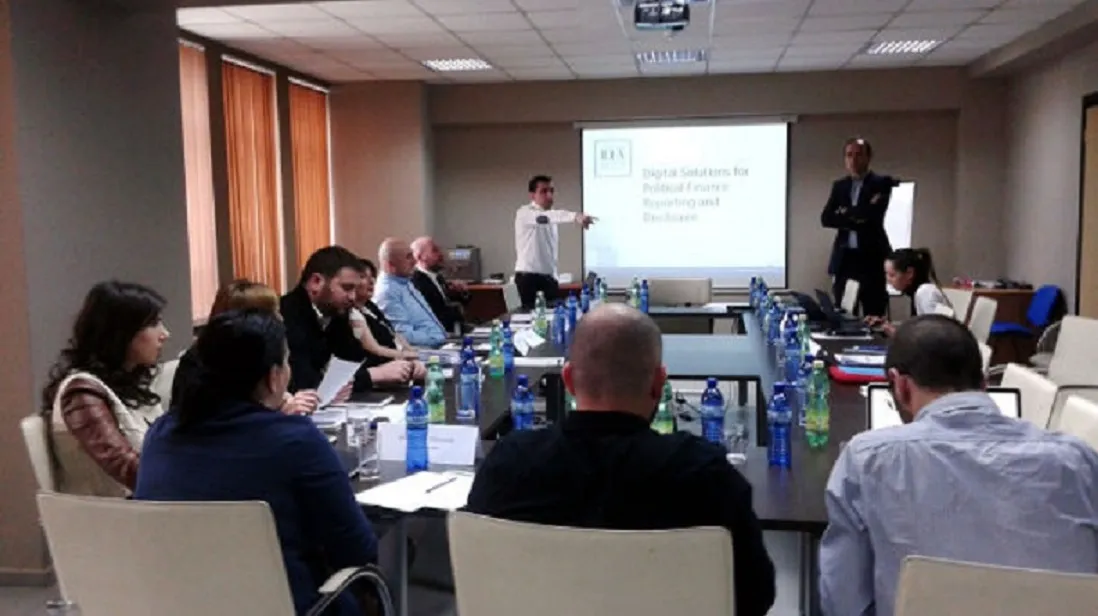
One of the major challenges related to money in politics is the considerable lack of transparency surrounding political party and election finance.
There are numerous factors that explain why there is often such poor transparency surrounding political finance data. One is undoubtedly political will: both a reluctance of parties to report all the information required of them, as well as for oversight agencies to make information public. Other problems are more technical and include poorly designed reporting forms, as well as lack of financial management capacity by parties and candidates to comply.
Around the world, there is a wide variance in how political finance data is reported. Around three quarters of countries require, by law, parties and/or candidates to report at least some financial information to an oversight agency (various institutions fulfil this role). It is not uncommon for a country to allow a combination of different reporting methods. In many cases, like in Myanmar or India, reporting is handwritten and filed by post. Often it is filled in an electronic format such as Excel and sent by email, like in the cases of Chile and the Philippines. Only in a small number of countries is reporting is done via an online platform.
Three-fifths of the countries around the world provide rules for some sort of public disclosure for political party finance. Nevertheless, information is disclosed in a variety of ways. While in some cases oversight agencies must make their records available to the public at their office or act upon specific requests, in other cases data must be published in a certain number of newspapers or on the website of the oversight agency.
Given that transparency should form the cornerstone of any healthy political finance system, it is surprising that only a few countries allow for parties and candidates to report financial data directly in an online platform. It is more common, but by no means the norm, that oversight agencies publish some amount of data on their websites. Comprehensive systems, for both digital reporting and disclosure, are in place in countries including Australia, Estonia, Finland, Norway, the United Kingdom and the United States. Some other countries have new systems that are on the verge of refinement, like in the cases of Brazil, Colombia and India. However, despite the benefits such systems would provide in terms of oversight chores to audit agencies, reporting for political parties and access to information to citizens, very few countries have these digital systems in place.
International IDEA’s technical support
With the aim of assisting political finance oversight agencies to receive and publish political party and candidate financial data digitally, International IDEA has developed an Advisory Framework for Digital Solutions for Political Finance Reporting and Disclosure. A facilitator’s package is included as part of the framework to assist with its implementation. The aim of this framework is to support the process of building an online- or software-based system for the receipt and publication of political finance data--specifically designed to suit the parameters for each respective oversight agency. The user explores the different stages of the design and implementation process: Planning phase, Design and development of a digital reporting system, Utilizing data received, and Maintaining and upgrading a system.
The framework draws heavily on the experiences and lessons learned from Australia, Estonia, Finland, United Kingdom and the United States as these countries have already built such platforms.
In-country technical advice in Georgia
International IDEA is currently in the process of assisting the State Audit Office (SAO) in Georgia as they are building a comprehensive digital reporting system for political parties for the next parliamentary elections in 2016. The work started on 25 April in Tbilisi, and brought together SAO’s political finance specialists, investigators and IT specialists.
Guidance was also provided to the Central Electoral Commission in Bosnia and Herzegovina and Moldova on this topic. Future exploratory meetings to provide technical advice on this topic, include Nepal and Ukraine.



